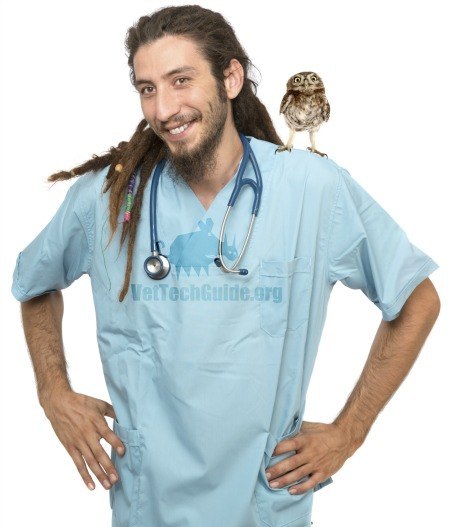When many people think of veterinary technicians, they often picture professionals who assist veterinarians in the care of cats and dogs.
However, vet techs can provide basic care to many more types of animals including farm animals, zoo animals, wildlife, marine life, rodents and birds. Those who choose to specialize in the care of birds are known as avian veterinary technicians.
Common Places of Employment
There are many different types of birds, and they include pet birds, wild birds and those kept on farms. Furthermore, they can vary in size from tiny finches and hummingbirds to birds as large as eagles and ostriches.
As such, avian vet techs can be found working in a variety of environments. However, some of their most common employers today are as follows.
- Avian Veterinary Specialty Practices

- Small Animal Practices
- Zoological Parks
- Aviary Centers and Parks
- Wildlife Centers and Parks
- Research Facilities
- Wildlife Preservation Organizations
- Educational Facilities
Educational Requirements
While the American Veterinary Medical Association does not currently recognize specialty certification for avian medicine, there are some steps you can take to increase your chances of obtaining employment in this exciting field. First of all, you will need to complete an AVMA-approved veterinary technology program.
This will typically involve completing a two-year curriculum of coursework that consists of various general education classes, vet tech-related courses and a short internship. Additionally, during your training, you will want to enroll in as many avian-related courses as possible.
Testing and Licensing
After you complete your training, you will need to sit for the Veterinary Technician National Exam and apply for licensing in your state.
After obtaining employment, if you would like to specialize in avian medicine, it is recommended to join the Association for Avian Veterinarians and attend as many conferences as you can.
Of course, it may take some time to gain experience and specialized knowledge in the field of avian veterinary medicine.
However, with a bit of time and patience, you may be able to secure a position as an avian veterinary technician at one of the facilities listed above.
Special Considerations
Birds are creatures that require special care and unique skills. Small birds are very delicate and require extra careful handling.
Furthermore, many pet birds cannot withstand cold temperatures. As such, they must be kept warm at all times. On the other hand, large birds such as eagles or ostriches can be quite difficult and even dangerous to handle.
Additionally, most wild birds require special diets that must be met for them to survive. With that said, avian vet techs must be knowledgeable in the care and nutritional needs of various types of birds. Finally, birds can become frightened easily requiring calm and gentle handling.
Common Responsibilities
The responsibilities of avian veterinary technicians can vary significantly depending on their places of employment. However, there are some tasks that are common to many facilities that treat birds, and they are listed below.
- Holding or Restraining Birds During Examinations and Procedures
- Collecting Laboratory Samples
- Performing Laboratory Tests
- Assisting During Surgical Procedures
- Clipping Nails and Wings
- Wrapping Injured Wings
- Weighing Birds
- Tagging Wild Birds
- Observing and Recording the Behavior of Birds
- Feeding Birds and Cleaning Cages
Avian veterinary medicine is a growing field that promises many employment opportunities for trained veterinary technicians.
However, since it is also an extremely competitive field, you will want to be sure to take the extra steps outlined above to increase your chances of obtaining the job you desire.